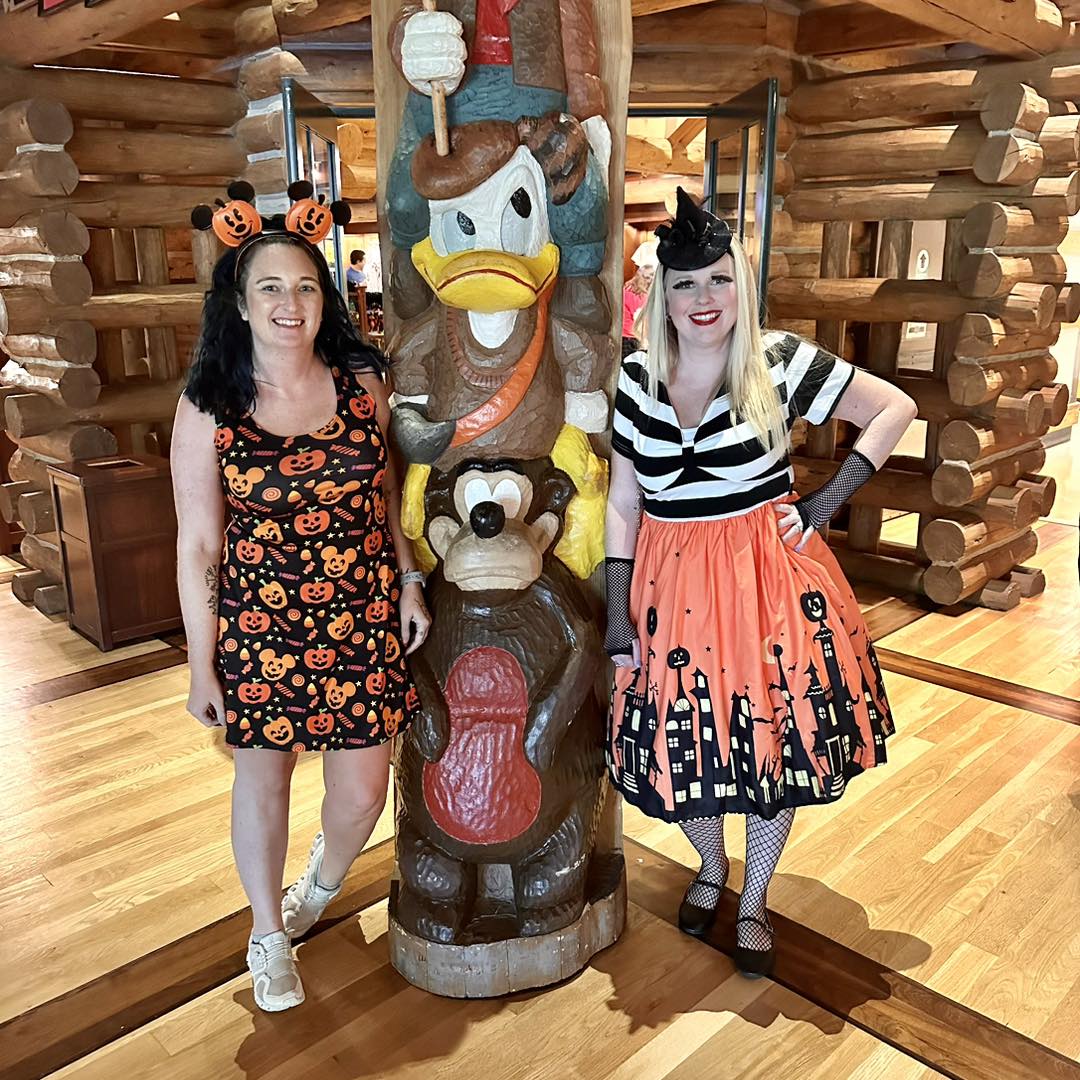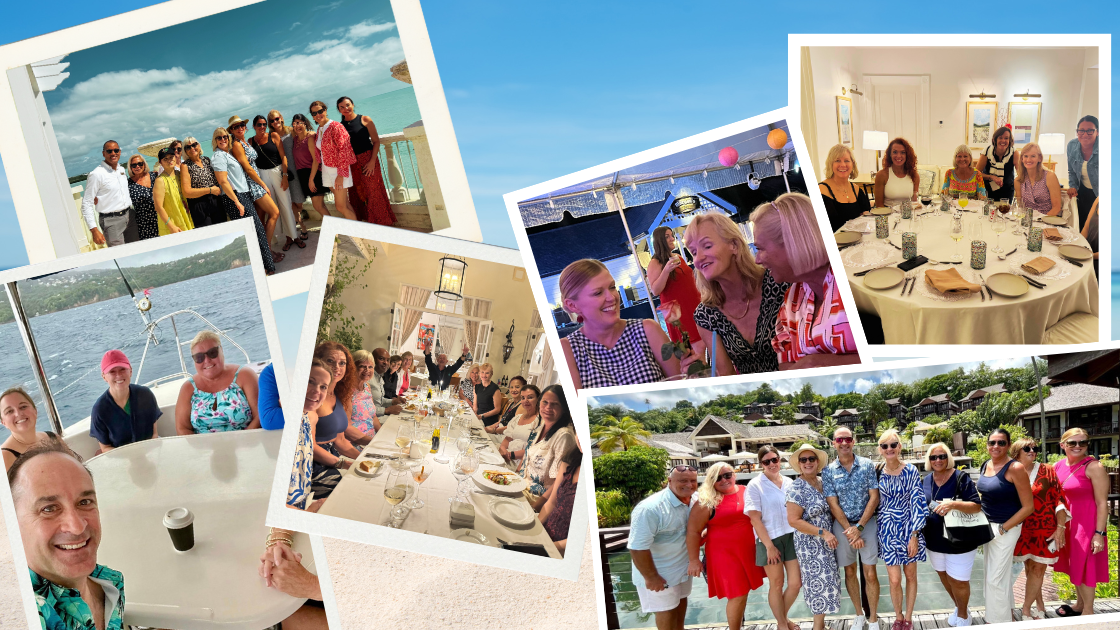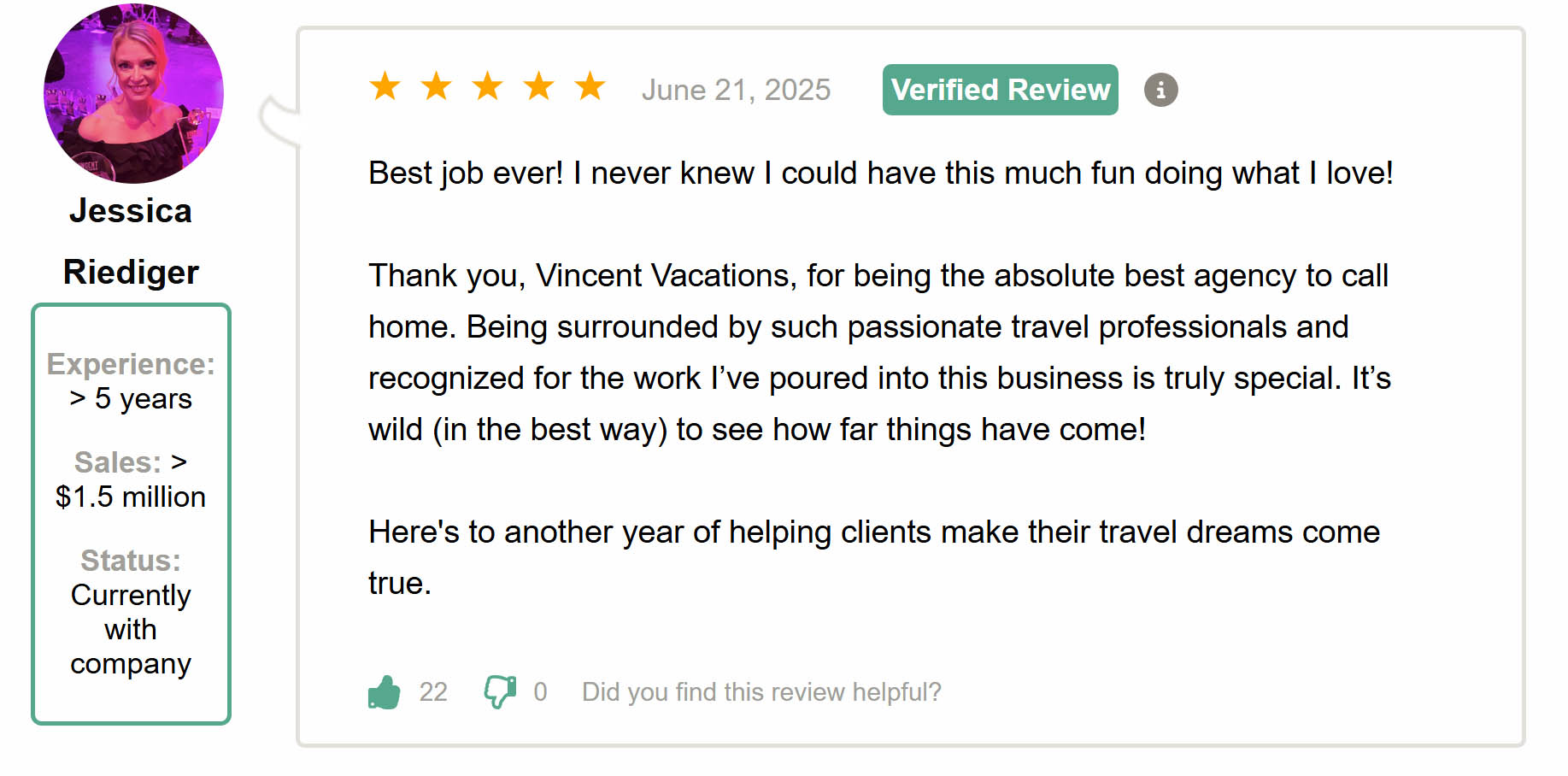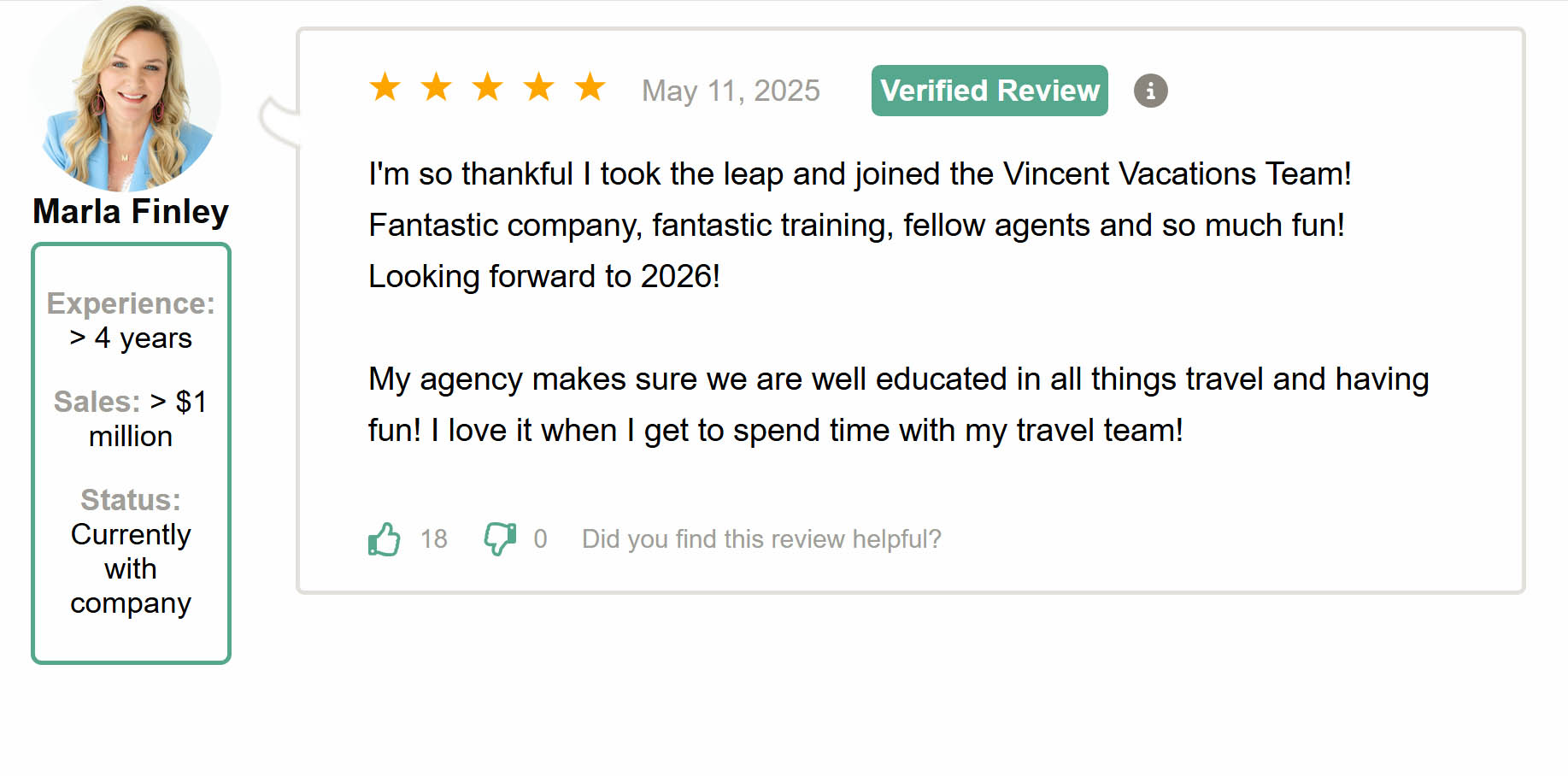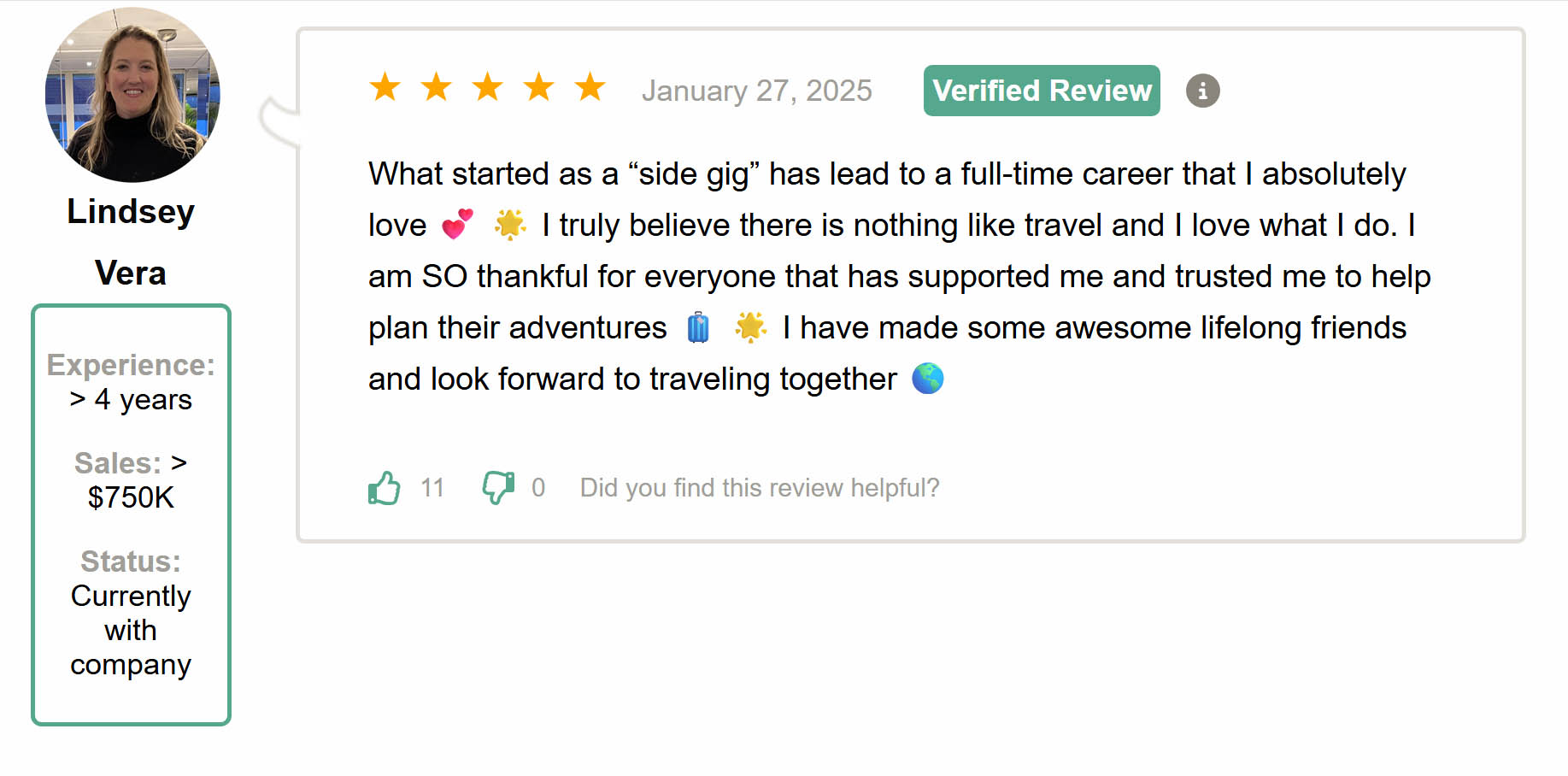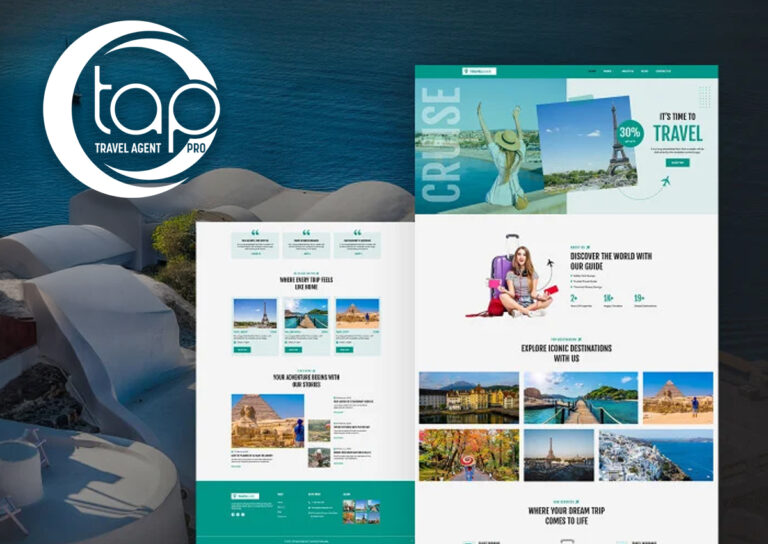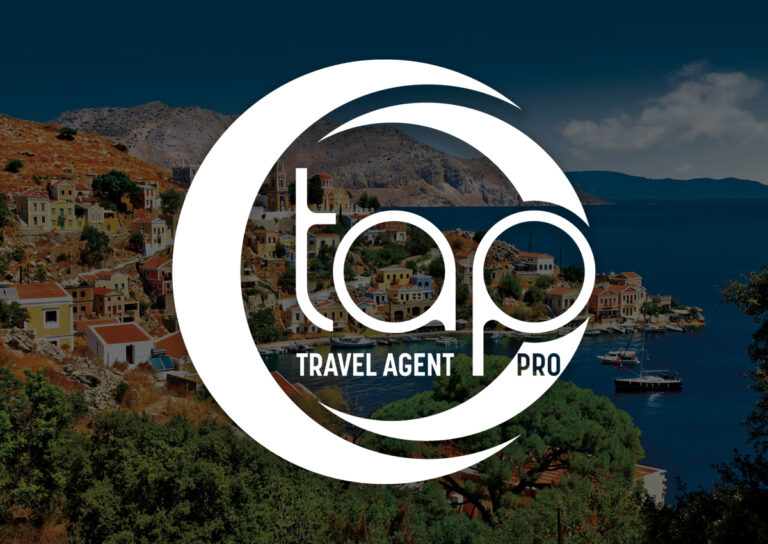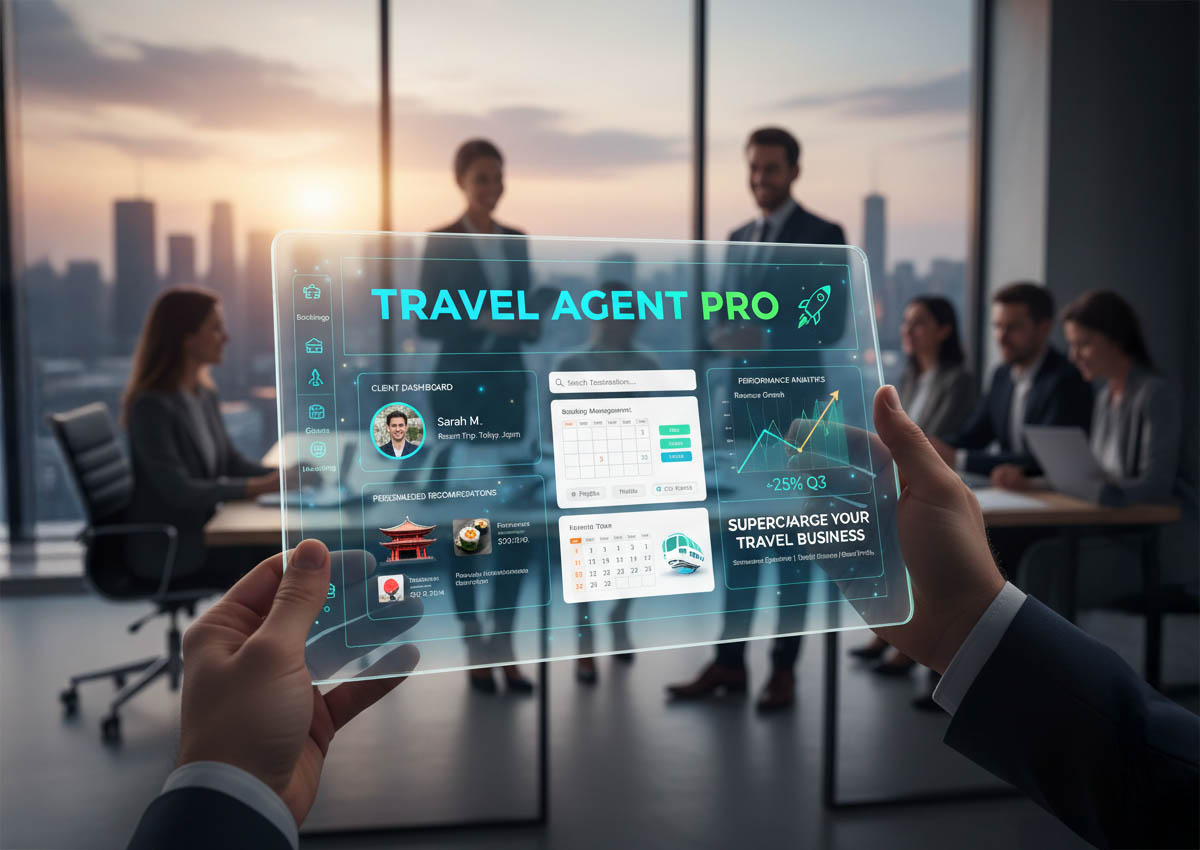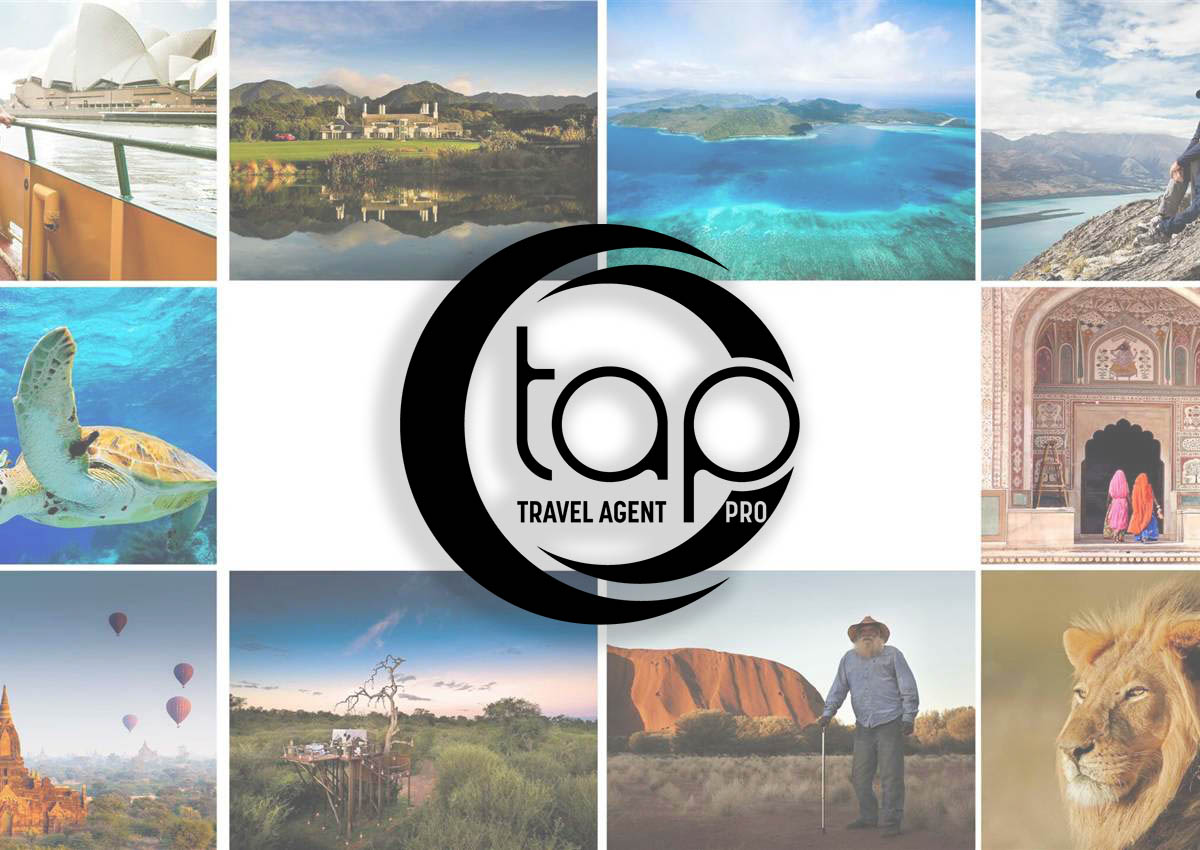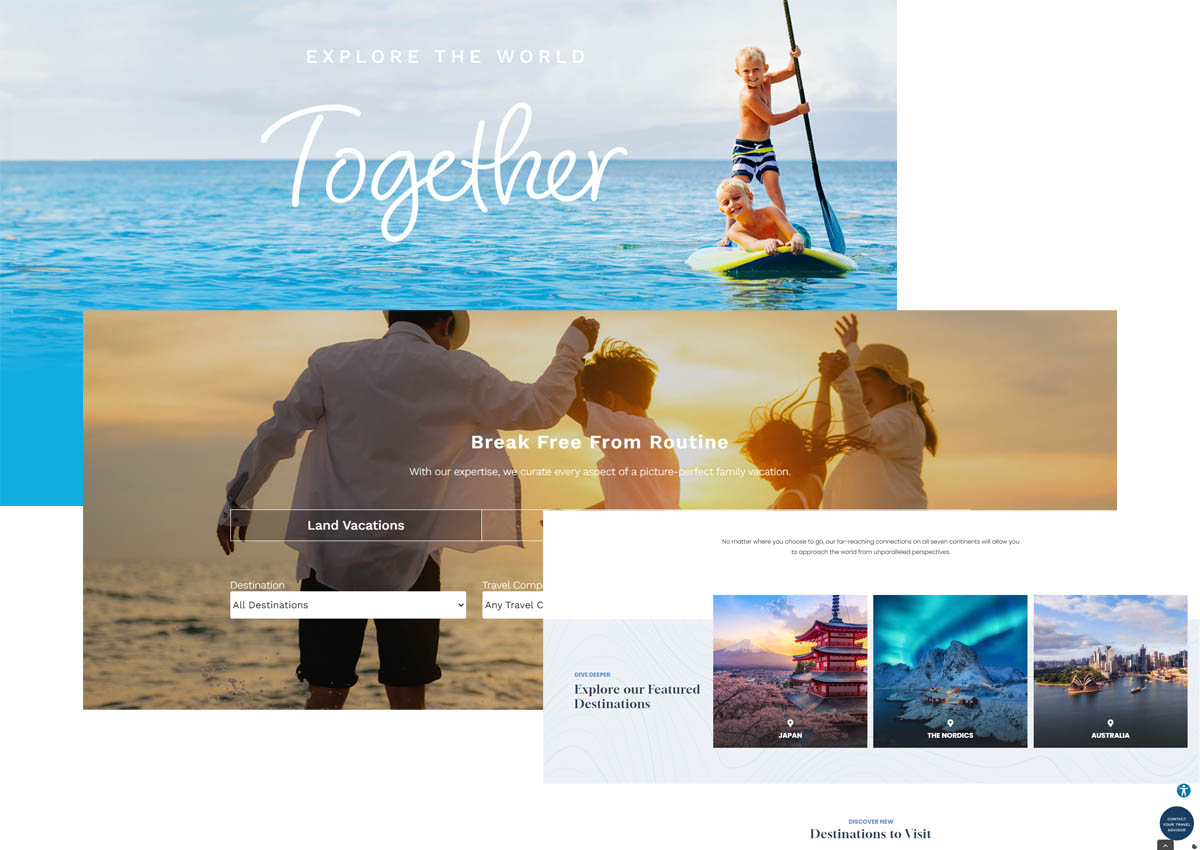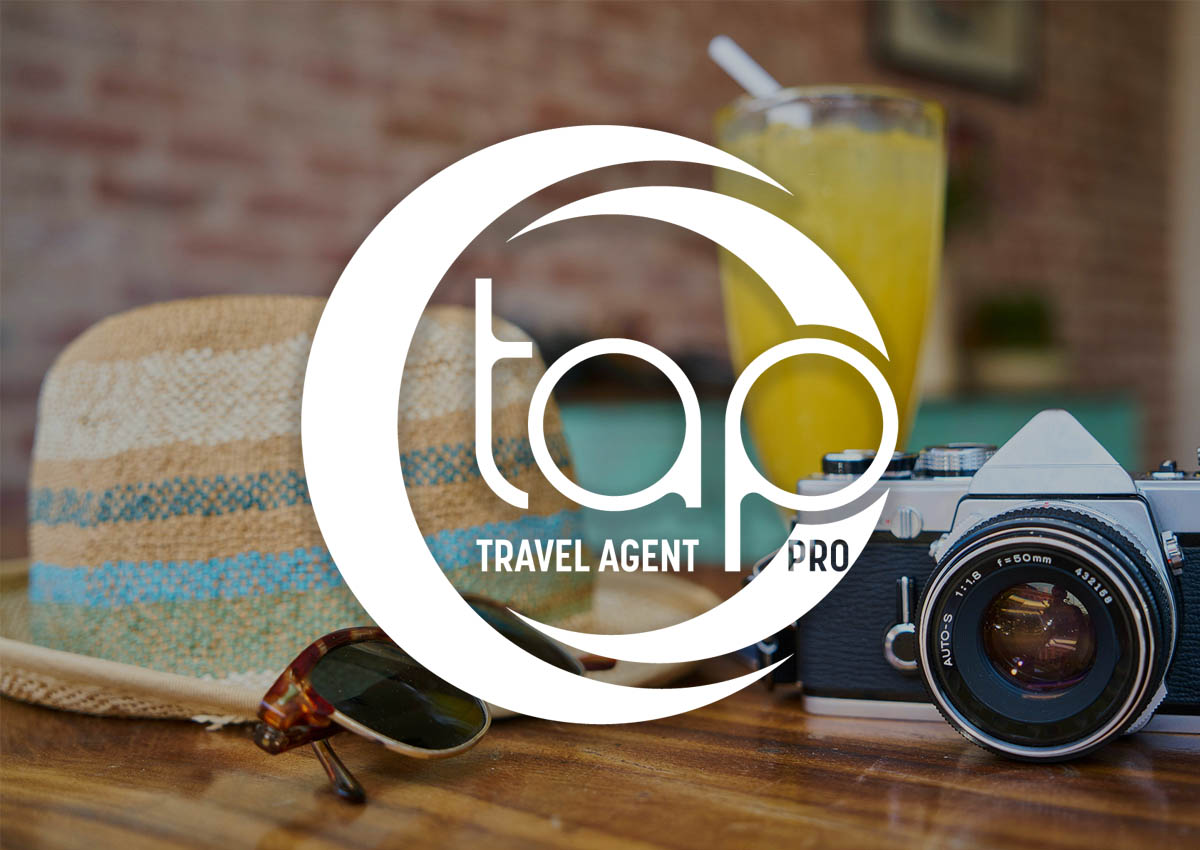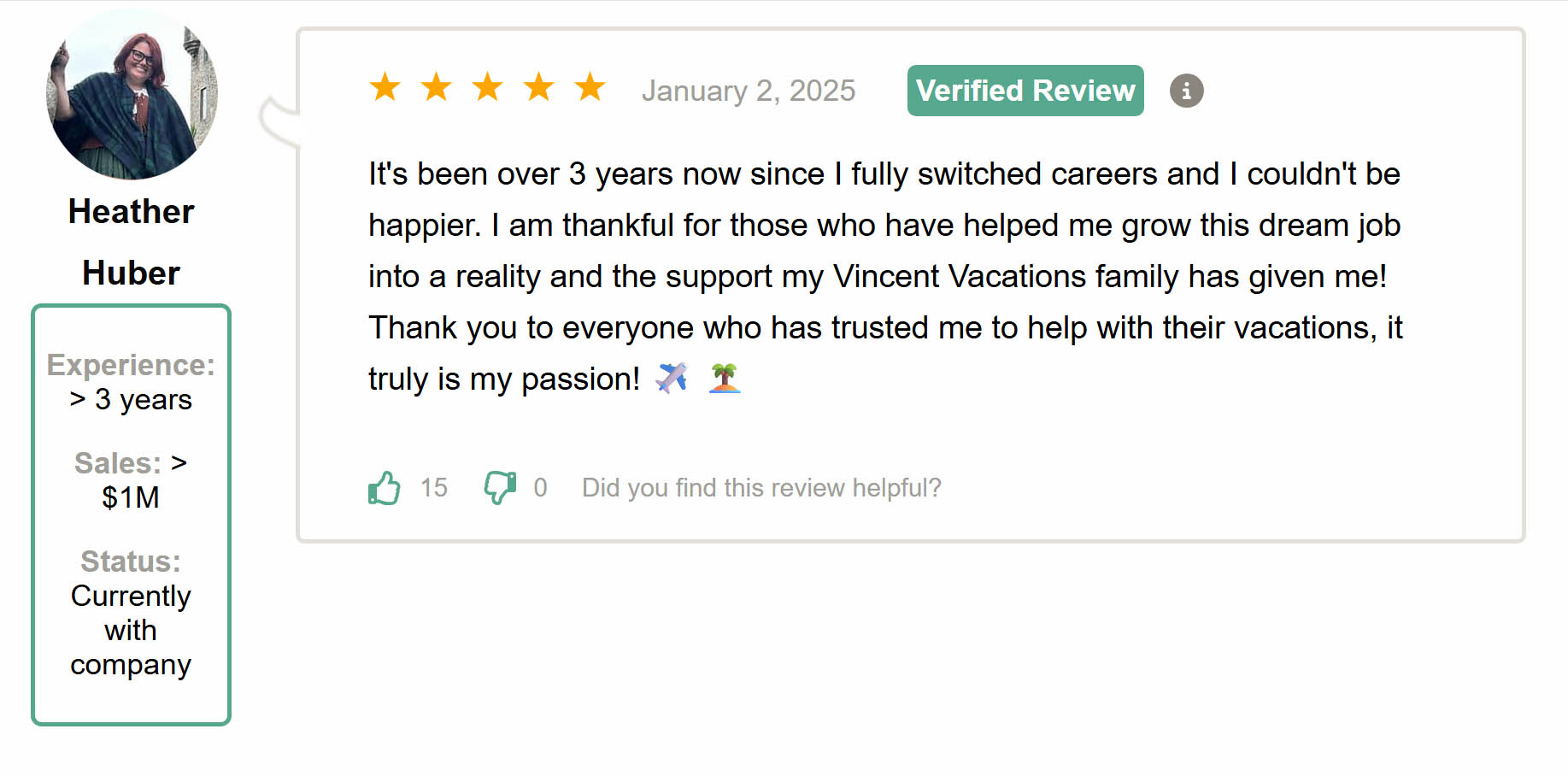Category :
Professional DevelopmentBecoming a full-time travel agent
To learn more techniques and how to create and grow your own travel business, sign-up to become a member today!
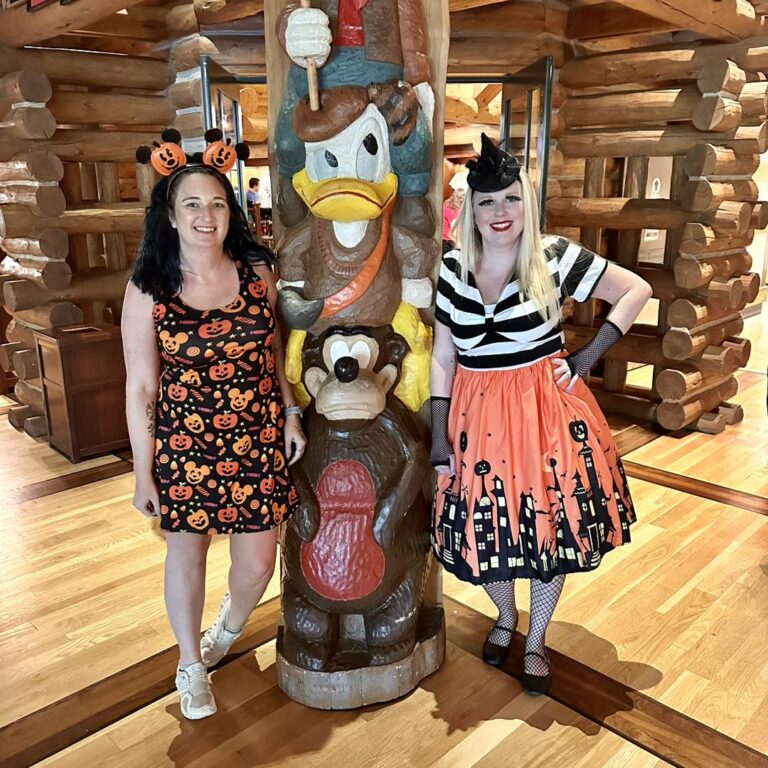
The Ultimate 101 Guide to Becoming a Full-Time Travel Agent
- Ready to ditch the 9-to-5? Join 'Vincent Vacations' and turn your passion for travel into a full-time career.
- Unlock unlimited earning potential with high commission rates and the support of our experienced host agency.
- Gain access to exclusive training and resources at 'Vincent Vacations', setting you up for success from day one.
Most travel agents start out part time and dream of the day they can finally go full time - quit their day jobs, say see ya later to their 9 to 5 and be their own boss!
This is a GREAT dream and we’ve had the privilege of celebrating with so many of our travel agents who have finally been able to make the full time leap over the years!
Not only this, they have gone above and beyond their goals and what they had ever dreamed! Some of our agents bring home 150k+ commissions / year, selling over 1.5 million in travel.
We know it can be done and we know YOU can do it, too! We also know what it takes, and we have a few pointers for you to get you headed in the right direction
So, how do you get to the point where you are consistently hitting your monthly income goal?
You have a few options:
1) Increase the number of trips you book
This requires you to create a marketing plan that gets you in front of more of your ideal clients.
2) Increase your average cost-per-trip
Maybe you know you only want to work with 5 clients a month, which means you need to book trips that net you at least $1k, so now you need to focus on increasing your average cost-per-trip.
a. You can upsell your clients
- suggest special upgrades or add-ons that will add value to their trips - or a different trip altogether! Remember to always provide exceptional customer service, and be honest with your clients about which upgrades are worth their money. Repeat clients are a gold mine - keep them happy and coming back to you for more!
b. You can adjust your niche
, or just your focus within your niche by booking larger trips, group trips, or higher luxury trips, for example.3) Increase your average commission
Maybe you don’t want to work with more clients, and you don’t want to book more expensive trips, another option is to look for and book itineraries that have a higher commission structure.
Transitioning from a part-time to a full-time travel agent
Transitioning from a part-time to a full-time travel agent, where your commissions are sufficient to afford a living, requires strategic planning, skill development, and effective marketing. Here are some key pieces of advice to help you make this transition successfully:
Build a Strong Client Base
- Leverage Your Network: Start with family, friends, and acquaintances. Provide exceptional service to encourage word-of-mouth referrals.
- Utilize Social Media: Regularly post engaging content about travel deals, tips, and destination highlights to attract a wider audience.
- Email Marketing: Keep in touch with potential and past clients through newsletters featuring travel deals, tips, and personalized travel suggestions.
Specialize in a Niche
- Find Your Specialty: Focus on a specific type of travel or destination where you have expertise or personal interest (e.g., cruises, luxury travel, adventure tours).
- Become an Expert: Gain in-depth knowledge about your niche to provide unique insights and recommendations that set you apart.
Improve Sales and Marketing Skills
- Sales Training: Invest in courses or workshops to enhance your sales techniques, especially in understanding client needs and closing deals.
- Digital Marketing: Learn about SEO, content marketing, and digital advertising to increase your online visibility and attract more clients.
Increase Product Knowledge
- Stay Informed: Regularly update yourself on new destinations, travel products, and industry trends.
- Attend Industry Events: Participate in webinars, conferences, and travel expos to network and learn about new offerings.
Optimize Your Time
- Efficient Workflow: Use CRM and booking tools to streamline administrative tasks, allowing more time for client engagement and sales.
- Set Clear Goals: Have specific, measurable objectives (e.g., number of bookings per month) and a plan to achieve them.
Offer Exceptional Customer Service
- Personalized Experiences: Tailor travel recommendations to match individual client preferences, creating memorable experiences.
- Prompt Communication: Respond quickly to inquiries and provide ongoing support during and after travel.
Expand Your Offerings
- Package Deals: Collaborate with providers to offer exclusive packages or deals, increasing the value proposition for clients.
- Diversify Services: Consider offering additional services like travel insurance, visa assistance, or customized itinerary planning.
Focus on Client Retention
- Follow-Up: Check in with clients post-trip to gather feedback and maintain the relationship.
- Loyalty Programs: Implement referral or loyalty programs to encourage repeat business.
Financial Planning
- Budgeting: Keep track of income and expenses. Plan your finances to accommodate the transition period.
- Diversify Income: Consider complementary income streams, like travel blogging, to supplement your commission during the transition.
Seek Mentorship and Support
- Find a Mentor: Connect with experienced travel agents to gain insights and advice.
- Join Professional Networks: Engage with travel agent communities for support, partnership opportunities, and shared resources.
Remember, transitioning to a full-time travel agent role takes time and persistence. Focus on delivering value to your clients, continually improving your skills, and effectively marketing your services. With dedication and strategic planning, you can grow your business to a point where your commissions support a comfortable living.
Key steps to becoming a full time travel agent
To become a full-time travel agent, there are several key steps that you should follow. These steps involve a combination of education, certification, practical experience, and business development. Here's a comprehensive guide based on multiple sources:
Education and Training
- High School Diploma or Equivalent: This is generally the minimum educational requirement. Focus on subjects like geography, world history, foreign languages, and business courses to develop relevant knowledge and skills.
- Travel Agent School: Post-secondary education isn't mandatory but can enhance your credentials. You can complete a travel and tourism program or attend a trade school offering travel agent classes, which usually take about 16 weeks. Some travel agencies may prefer or require an associate or bachelor’s degree in a business-related field.
Certification and Specialization
- Certification Programs: After your coursework, apply for certifications from organizations like the International Air Transport Association (IATA), Travel Industry Designator Service (TIDS), and Cruise Lines International Association (CLIA). These certifications allow you to book various travel services and receive commissions.
- Specialization: Consider focusing on specific areas like cruises, luxury travel, or specific destinations to differentiate yourself and cater to particular client needs.
Practical Experience
- Gain Experience: Seek internships or part-time jobs in travel agencies, tour operators, or hospitality companies. This hands-on experience is invaluable for understanding the travel industry's operations and building contacts.
- Develop Essential Skills: Strong customer service and sales skills are crucial. Focus on communication, interpersonal, and problem-solving skills. Working in customer-facing roles or undergoing relevant training can be beneficial.
Building a Client Base
- Networking: Building a network of clients often starts with your personal network. Booking travel for family and friends can lead to word-of-mouth referrals. Be proactive about marketing yourself on social media and via email.
Establishing Your Business
- Join a Travel Agency or Start Your Own: You can join an existing travel agency or start your own. If you start your own business, ensure you understand the legal and business aspects, including local licensing requirements and insurance options. Alternatively, you can become an independent agent working with a host agency.
- Marketing and Branding: Develop a unique brand and implement a marketing strategy. Utilize content marketing tools, email templates, and social media resources to enhance your professional appearance. Focus on building your brand around your niche.
Continual Learning and Professional Development
- Stay Updated: The travel industry is constantly evolving. Engage in continuous learning by attending workshops, webinars, and industry conferences. Join professional associations for resources and development opportunities.
Financial Aspects and Benefits
- Earnings: Travel agents can earn commissions from bookings, which vary depending on the agency or host agency you work with. For example, Marriott offers a commission of 8% to 10% for all eligible stays booked.
- Discounts and Luxury Programs: As a travel agent, you can access discounted rates and luxury travel programs, which include benefits like room upgrades, complimentary breakfast, and credits for dining or spa services.
Following these steps can set you on the path to becoming a successful full-time travel agent, whether you're looking to work for an established agency or start your own business. Remember, success in this field comes from a combination of education, experience, networking, and continuous adaptation to the changing landscape of the travel industry.
Understand what's fully needed
Creating a comprehensive guide on becoming a full-time travel agent involves several key steps, from acquiring the necessary education and certifications to developing essential skills and building a client base. Here's a detailed guide to help you get started on your journey to becoming a full-time travel agent:
Understand the Role
- Job Description: Learn about the duties and responsibilities of a travel agent, including planning trips, booking accommodations, arranging transportation, and providing travel advice.
- Industry Trends: Stay informed about the latest trends in the travel industry, such as eco-tourism, adventure travel, or luxury travel.
Acquire Education and Training
- Formal Education: Although not always required, having a degree in tourism, hospitality, or a related field can be beneficial.
- Travel Agent Training Programs: Enroll in specialized training programs that offer courses in travel planning, reservation systems, and travel industry laws and regulations.
Obtain Certifications
- Certification Programs: Consider obtaining certifications from recognized organizations like The Travel Institute or the American Society of Travel Agents (ASTA).
- Specializations: You can also get certified in specific areas like cruise lines, luxury travel, or specific destinations.
Develop Essential Skills
- Customer Service Skills: Excellent communication and customer service skills are crucial for understanding clients' needs and providing satisfying travel experiences.
- Organizational Skills: Be adept at organizing various aspects of travel, managing bookings, and keeping track of travel schedules.
- Sales and Marketing Skills: Learn how to market your services effectively and sell travel packages.
Gain Experience
- Internships and Entry-Level Positions: Seek internships or entry-level positions in travel agencies to gain hands-on experience.
- Networking: Attend industry events and join professional travel associations to network with industry professionals.
Choose a Work Environment
- Join a Travel Agency: You can work for an established agency to gain experience and build a client base.
- Freelancing or Independent Agent: Alternatively, start as a freelancer or an independent agent, which offers more flexibility but requires more self-marketing.
Build a Client Base
- Networking and Referrals: Use your network to find clients and ask for referrals from satisfied customers.
- Online Marketing: Utilize social media, email newsletters, and a professional website to attract and retain clients.
Stay Informed and Continue Learning
- Ongoing Education: Continuously update your knowledge about new travel destinations, regulations, and technologies.
- Industry Publications and Events: Subscribe to travel industry publications and attend workshops and seminars.
Set Up Your Business
- Business Plan: If you plan to operate independently, create a business plan outlining your services, target market, marketing strategy, and financial projections.
- Legal Requirements: Understand and comply with any licensing, insurance, and legal requirements for travel agents in your area.
Marketing and Branding
- Create a Brand Identity: Develop a unique brand for your travel agency, including a logo, business cards, and a professional website.
- Marketing Strategy: Implement a marketing strategy that includes social media, content marketing, local advertising, and partnerships.
Leverage Technology
- Reservation Systems: Learn how to use various reservation and booking systems.
- Travel Agent Software: Familiarize yourself with travel agent software that can help manage client information, itineraries, and financial transactions.
Build Partnerships
- Vendor Relationships: Establish relationships with airlines, hotels, tour operators, and cruise lines to get the best deals for your clients.
- Industry Partnerships: Partner with other travel agents or agencies to expand your service offerings and client base.
Focus on Customer Experience
- Personalized Service: Offer personalized travel experiences tailored to each client's preferences and needs.
- Feedback and Improvement: Regularly seek feedback from clients and use it to improve your services.
Financial Management
- Budgeting and Pricing: Develop skills in budgeting, setting service fees, and managing finances.
- Record Keeping: Keep accurate records of transactions, client details, and supplier agreements.
Becoming a successful full-time travel agent requires a combination of education, experience, networking, and continuous learning. With dedication and a passion for travel, you can build a rewarding career in this dynamic industry.
Becoming a full-time travel agent can be an exciting and rewarding career choice, but it requires careful planning and preparation. Here's a step-by-step guide on what is needed to become a successful full-time travel agent:
Self-Assessment and Research
- Evaluate Your Interests: Determine your passion for travel and whether you're genuinely interested in helping others plan their trips.
- Research the Industry: Gain a comprehensive understanding of the travel industry, including its trends, challenges, and opportunities.
- Assess Your Skills: Identify your strengths and weaknesses, including communication, sales, organization, and customer service skills.
Education and Training
- Get Relevant Education: Consider enrolling in a travel and tourism program or taking online courses related to the travel industry. This can provide you with a solid foundation.
- Specialize: Determine if you want to specialize in a specific niche within the travel industry, such as luxury travel, adventure travel, or corporate travel. Specialization can set you apart from competitors.
- Certifications: Obtain industry-recognized certifications, such as those offered by The Travel Institute or the International Air Transport Association (IATA), to enhance your credibility.
Legal and Business Requirements
- Legal Structure: Decide on the legal structure for your travel agency, such as a sole proprietorship, LLC, or corporation. Consult with legal and financial professionals to make the right choice.
- Business Registration: Register your business with the appropriate government authorities and obtain any necessary licenses or permits.
- Insurance: Consider business insurance, including professional liability insurance, to protect yourself and your clients.
Business Planning
- Create a Business Plan: Develop a comprehensive business plan that outlines your goals, target market, marketing strategies, budget, and financial projections.
- Set Pricing and Fees: Determine your pricing structure and fees for your services. Consider how you'll earn commissions and fees from suppliers.
Technology and Tools
- Tools and Software: Invest in travel agency management software, booking systems, and other tools to streamline your operations.
- Online Presence: Create a professional website and establish a strong online presence through social media platforms to market your services.
Networking and Supplier Relationships
- Build a Network: Establish relationships with suppliers, airlines, hotels, cruise lines, and tour operators. Attend industry events and join travel agent networks.
- Supplier Agreements: Negotiate contracts and agreements with suppliers to access exclusive deals and commissions.
Compliance and Legalities
- Regulatory Compliance: Ensure compliance with industry regulations, including any licensing or bonding requirements in your area.
Marketing and Branding
- Brand Identity: Develop a strong brand identity that reflects your niche and values as a travel agent.
- Marketing Strategies: Create a marketing plan that includes online and offline strategies to reach your target audience.
- Content Creation: Produce high-quality content, such as blog posts and travel guides, to showcase your expertise and attract clients.
Client Relationship Management
- Client Database: Implement a system for managing client information, preferences, and bookings.
- Exceptional Service: Provide personalized and exceptional customer service to build trust and loyalty with your clients.
Launch and Growth
- Launch Your Agency: Start offering your services to clients and focus on building your client base through marketing efforts and referrals.
- Continuous Learning: Stay updated on industry trends and continuously improve your skills and knowledge.
- Scaling Your Business: As your business grows, consider hiring staff or expanding your services to meet the demands of your clients.
Remember that becoming a successful full-time travel agent takes time and dedication. It's essential to stay adaptable and open to learning as you navigate the ever-evolving travel industry and meet the unique needs of your clients.
Learn more about this by signing up as a member, today! Vincent Vacations Application Form.
To learn more techniques and how to grow your travel business, read more on our Articles page.



